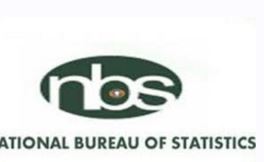P
ProfRem
Guest
Nigeria's inflation moderated in September by 0.25% to 17.9 percent, highlighting the economic crisis in Africa's most populous nation.
The rise from 17.4 percent in August reflected higher prices for electricity, kerosene, transport and food, a separate index for which rose to 16.6 percent from August's 16.4 percent, the National Bureau of Statistics (NBS) said on Friday.
"During the month, the highest increases were seen in clothing materials, shoes, books and stationeries," according to the latest released figures.

Nigeria, Africa's biggest energy producer, has seen its economy slide into recession for the first time in 25 years, largely due to the impact of low oil prices. Crude oil sales account for 70percent of government revenue.
The NBS has revised its forecast for year-end inflation, estimating the index will end at between 17.1 percent and 18 percent, up from 9 percent at the start of the year.
The rise from 17.4 percent in August reflected higher prices for electricity, kerosene, transport and food, a separate index for which rose to 16.6 percent from August's 16.4 percent, the National Bureau of Statistics (NBS) said on Friday.
"During the month, the highest increases were seen in clothing materials, shoes, books and stationeries," according to the latest released figures.

Nigeria, Africa's biggest energy producer, has seen its economy slide into recession for the first time in 25 years, largely due to the impact of low oil prices. Crude oil sales account for 70percent of government revenue.
The NBS has revised its forecast for year-end inflation, estimating the index will end at between 17.1 percent and 18 percent, up from 9 percent at the start of the year.

